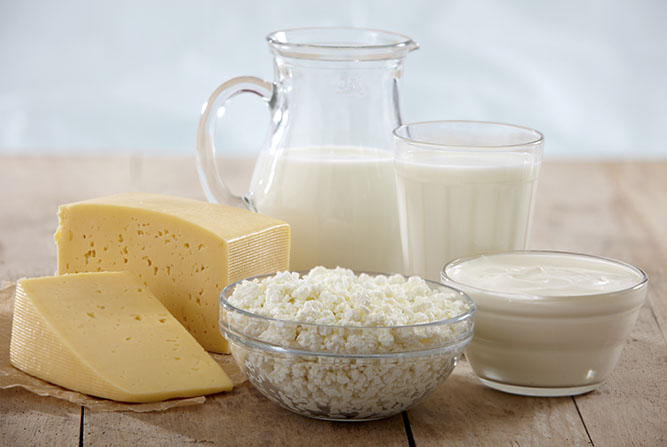7 Reasons Dairy has Become the New Gluten

A recent systematic literature review of observational studies looked at the relationship between obesity and cardiometabolic disease. Researchers concluded those who ate full-fat dairy had no greater risk for heart disease or diabetes than low-fat dairy eaters.
The review, published in the European Journal of Nutrition, examined 25 studies, 18 of which found those who consumed full-fat dairy weighed less or had less risk for obesity. None of the 25 studies reflected favorably on low-fat dairy. [1]
Likewise, a study last year found people who consumed higher levels of saturated fat in dairy products were less likely to develop Type 2 diabetes. [2] Such findings debunk the US Department of Agriculture’s (USDA’s) long-standing nutritional recommendations that we eat three cups of low-fat dairy a day. [3]
Turns out we have become seriously misled. When manufacturers remove fat from dairy, both the flavor and that food’s ability to make you feel full and satisfied are yanked, too. Less fat almost always means more sugar.
“Despite what those milk-mustachioed celebrities in those ‘Got Milk?’ ads have been telling us for years, humans have no nutritional requirement for milk, and it may be doing us more harm than good because of all the sugar even plain non-fat milk contains,” notes a 2013 study by Harvard pediatrician David Ludwig published in the Journal of the American Medical Association Pediatrics. [4]
Over the past few years, gluten has deservedly earned a bad rep. Is it now time to likewise evaluate dairy? Based on nearly three decades working with food intolerances, I find most people do better without dairy and especially milk.
I’m not just talking lactose intolerance, which alone affects about 75 percent of the world’s population. [5] As these following seven reasons reveal, dairy is far from a perfect food. Read on to Reason #1

1 cup So Delicious Unsweetened Coconut Milk (Almond milk would also work.)
3 teaspoons TCHO Natural Cocoa Powder (It's organic!)
6 tiny scoops 365 Organic Stevia Extract Powder (The tiny plastic scoop comes in the bottle.)
Dash of iodized sea salt
I get all the ingredients from my local Whole Foods Market, but any health food store would probably have most of these. After a few minutes of stirring this combination around over low heat, pressing the cocoa bits against the side of a pan to break them up, the hot chocolate is ready to drink. Enjoy!
The beverages of choice in our house are straight up water and unsweetened iced tea that we brew ourselves. Our kids prefer the water, hands down.
Glad to see some honest science coming out nowadays that we consumers can rely on, hopefully.
Related Keywords








